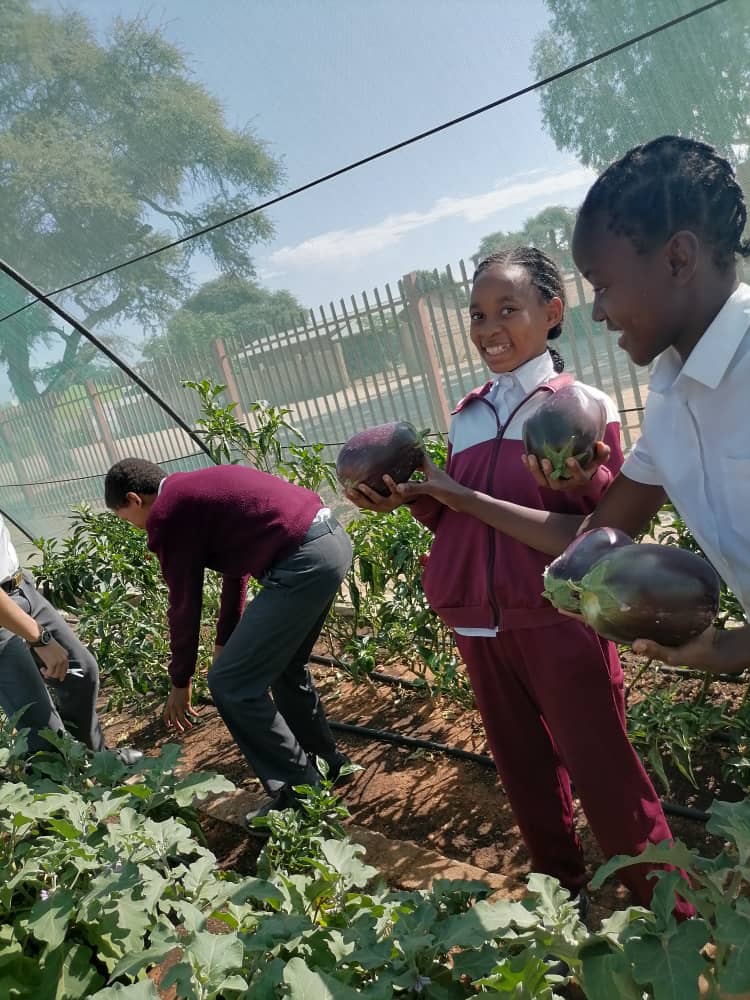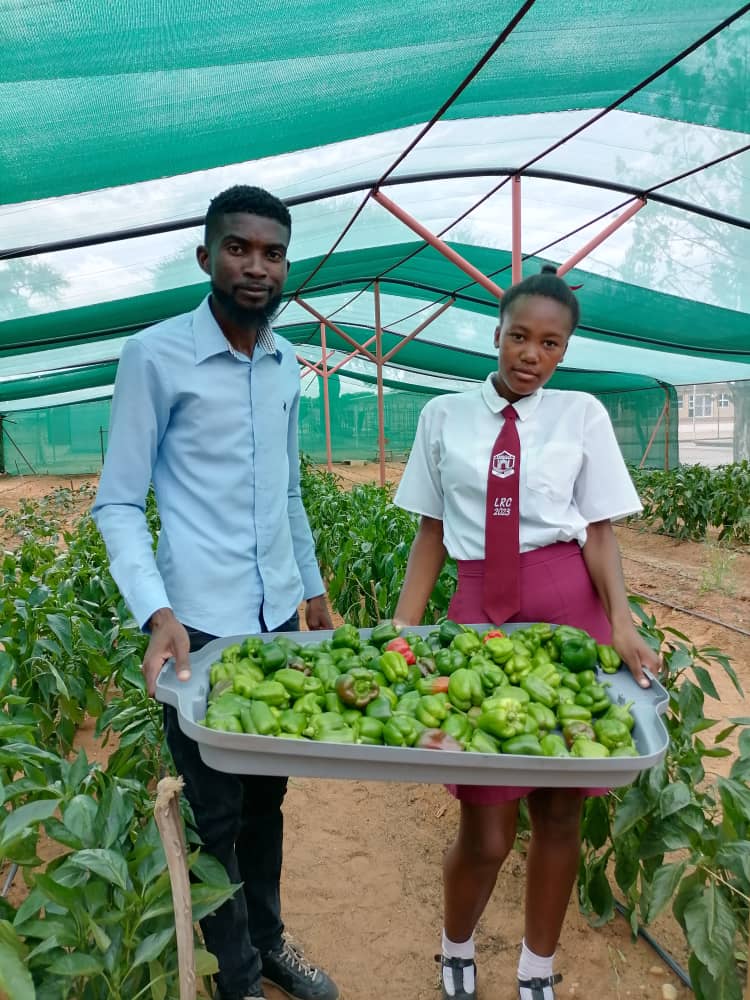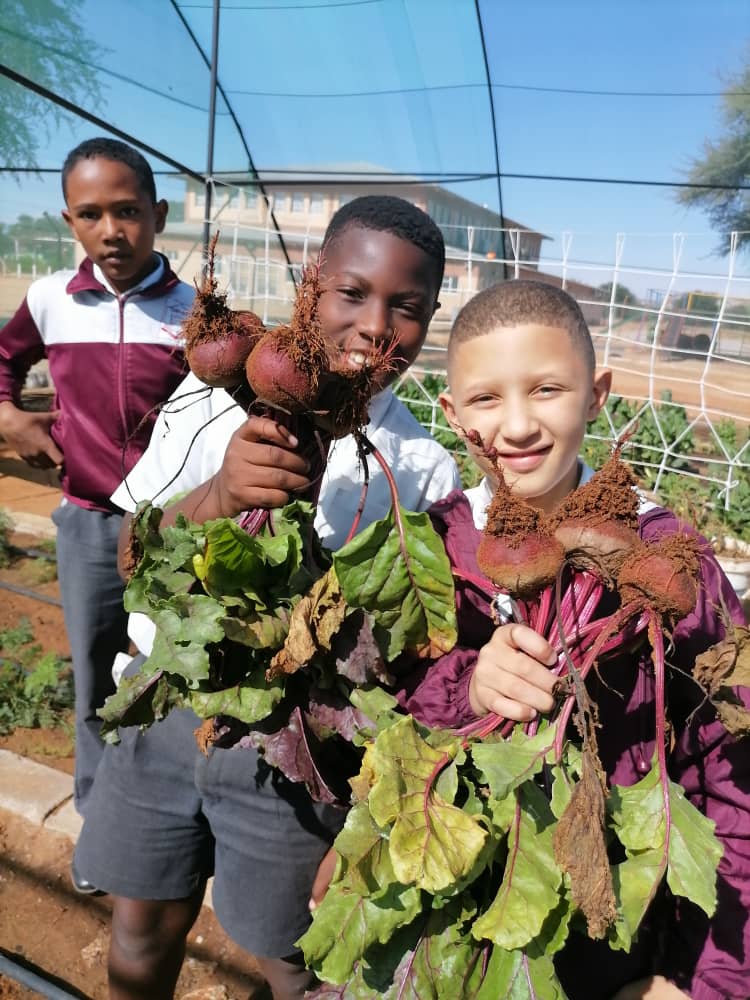Origo Primary School’s garden, called Origo Fresh Produce, has announced new plans, such as venturing into modern crop farming to save soil, water and space.
It is also planning to expand the project to fruit trees.

Origo is a government school, established in 1870, at Rehoboth.
The garden consists of a variety of vegetables, like onions, spinach, beetroot, tomatoes, lettuce, carrots, potatoes, eggplant and cauliflower.
Origo Fresh Produce spokesperson David Mwaala says the garden was established to meet the demand of the school’s soup kitchen.
“In line with the Namibian School-Feeding Programme, our school decided to establish a soup kitchen in 2016. It serves as a significant safety net to address hunger . . . which contributes to pupils’ ability to concentrate in class,” he says.
The school has two gardens.
The first garden was established in 2019, aided by Namibia Agronomic Board, and the second one in 2021.

Mwaala says the expansion of the new school garden was possible through funds generated from selling the school’s fresh produce to teachers, community members, local shops and street vendors.
He says the school has received continuous sponsorships from Sulaiman Fishing Company and Namibian Kids.
Mwaala says the project became more successful after Namibian Kids drilled a borehole in 2022 to cut water bills.
He says gardening is a great way to help children learn responsibility.
Pupils are encouraged to take care of their plants and work hard to grow them.
“Planting has the potential to enhance a sense of responsibility and will help children become more mature and responsible adults.
“Planting is also great for maths and logic skills. A younger child can count seeds and consider where to place them. Horticulture is also a source of joy and therapy for children and everybody.
“Our pupils are always eager and excited to work in the garden,” he says.
Mwaala says as part of the project pupils are learning about the whole gardening process.
“Pupils develop fine motor skills when they need to accurately pour from one container to another and gently press seeds into seed trays.
“There’s a lot of fine motor work going on during the gardening process. It is a great opportunity to get those fingers flexing and allow those smaller muscles to get a workout,” he says.
Melrith Green, a former pupil, says the project has helped him develop business skills.
He says he has also learnt how to do record keeping, budgeting, selling and debt collecting.
“I have a dream to help my community by establishing my own sustainable garden with the skills I have gained from my agriculture teacher,” Green says.
He says it was satisfying to know he was part of the process of producing nutritional food for his fellow pupils from disadvantaged families.
“At my tender age, I did not like the process of planting. However, I was inspired by my grandmother’s passion for planting. Hence, I decided to choose agriculture as my prevocational subject in Grade 5.
“I don’t regret the choice I made, because my agriculture teacher inspired me more than ever. I like planting because I can increase the oxygen level in the atmosphere by doing so.

“I can conserve nature for the next generation to see how beautiful it is. I like beautifying our land,” Green says.
Stay informed with The Namibian – your source for credible journalism. Get in-depth reporting and opinions for
only N$85 a month. Invest in journalism, invest in democracy –
Subscribe Now!






